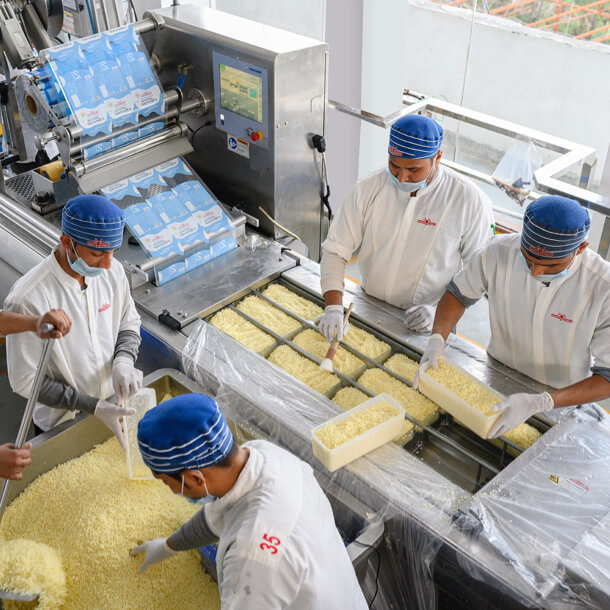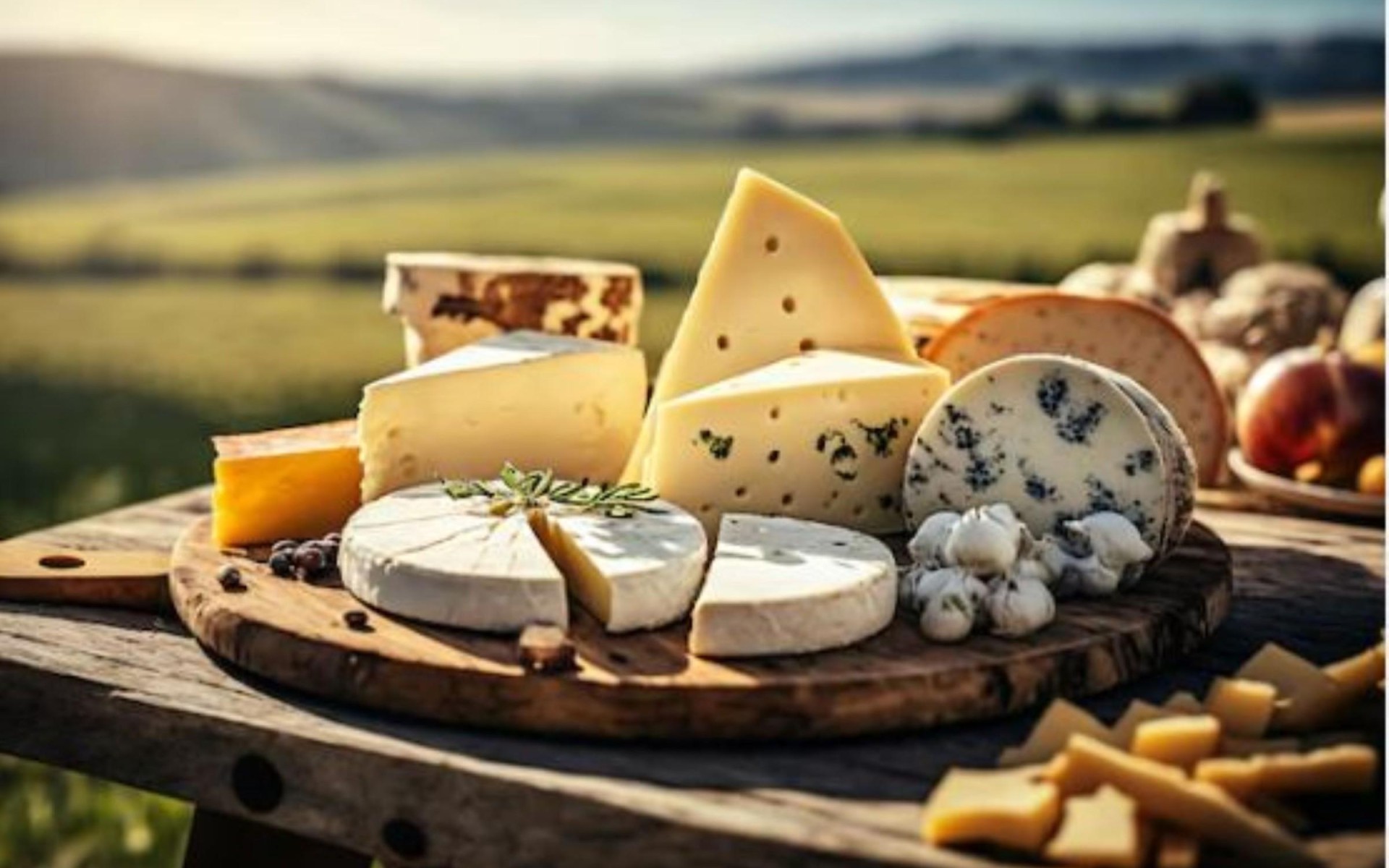Cheese Store Melbourne: Your Best Destination for All Things Cheese
Cheese Store Melbourne: Your Best Destination for All Things Cheese
Blog Article
Discovering the Art of Cheese Production: Strategies, Processes, and Innovations in the Dairy Market
The exploration of cheese production includes a varied selection of techniques and processes that mirror both historic customs and contemporary advancements within the milk market. By analyzing the elaborate art of fermentation, aging, and modern production techniques, one gains understanding right into exactly how craftsmens and large-scale producers alike adjust to advancing customer choices and sustainability difficulties. As we take into consideration the ramifications of these growths, it becomes vital to examine exactly how they will shape the future landscape of cheese and its role in our diets and culinary methods.
History of Cheese Making
Mapping its beginnings to old worlds, the background of cheese making reveals an abundant tapestry of cultural and technical evolution. Proof recommends that cheese manufacturing dates back over 7,000 years, with archaeological searchings for from areas such as Mesopotamia and the Indus Valley showcasing very early dairy products practices. These cultures utilized milk from domesticated pets, and with all-natural processes of fermentation and curdling, they generated simple kinds of cheese.
As people advanced, the art of cheese making became much more refined. The old Egyptians and Greeks recorded their methods, that included a selection of milk sources and diverse strategies for aging and flavor cheese. The Romans even more sophisticated cheese manufacturing, exporting their understanding throughout Europe, which brought about regional adaptations and special ranges.
The Middle Ages observed the establishment of abbeys as facilities of cheese manufacturing, where monks established distinctive dishes that reflected neighborhood preferences and offered resources. Throughout the centuries, cheese making has actually evolved, affected by aspects such as location, climate, and cultural methods. This rich history not just highlights the ingenuity of very early cultures however additionally lays the structure for the diverse cheese selections enjoyed today around the world.
Typical Cheese Production Techniques
Traditional cheese manufacturing techniques encompass a range of time-honored techniques that have been passed down with generations. These methods, often region-specific, reflect the distinct cultural heritage related to cheese-making. The process normally starts with sourcing top notch milk, which can differ in kind relying on the wanted cheese.
Coagulation is accomplished with the addition of rennet and sometimes an acid, resulting in the formation of curds. The curds are then reduced and delicately stirred, permitting whey to separate. This preliminary curdling phase is critical, as it affects the structure and dampness web content of the end product.

Fermentation and Aging Processes
Fermentation and aging processes are integral to the development of cheese, taking place after the preliminary coagulation and pushing stages. During fermentation, particular bacterial cultures are introduced to the curds, assisting in the conversion of lactose right into lactic acid. This acidity not just helps in curd preservation yet likewise adds to the taste profile and structure of the last item.
As the cheese ages, biochemical responses continue to take place, influencing its preference, scent, and texture. Various cheeses call for varying aging periods, which can range from a few weeks to a number of years, leading to unique qualities.
Moreover, the visibility of mold and mildews or yeasts on the cheese surface area can even more enhance taste intricacy. For example, blue cheeses count on specific mold cultures to develop their trademark taste accounts. In general, both fermentation and aging are important in defining the individuality of cheeses, allowing craftsmens to create a varied range of items that deal with a large range of tastes buds.
Modern Innovations in Milk Manufacturing
Innovations in milk production have actually transformed the cheese-making process, enhancing effectiveness and item high quality. Technical advancements, such as automated milking systems and discover this info here precision fermentation strategies, have structured procedures and boosted consistency in raw milk high quality. These systems lower labor costs and improve animal welfare by allowing for even more comfortable and reliable milking methods.
Moreover, the have a peek at these guys consolidation of data analytics and IoT (Web of Points) tools has actually allowed dairy products manufacturers to keep an eye on various criteria, such as temperature level and humidity, in real-time. cheese for sale online. This capability makes certain optimal conditions throughout the cheese-making procedure, resulting in a higher high quality output
Furthermore, technologies in pasteurization approaches, including high-temperature short-time (HTST) pasteurization, have not just raised food safety and security but also preserved the delicate flavors and nutrients inherent in milk.
Lasting techniques are also gaining traction, with developments in waste monitoring and renewable resource use. Lots of manufacturers are currently harnessing biogas from dairy waste, promoting environmental stewardship while simultaneously lowering functional prices.
These modern innovations jointly contribute to a more efficient, lasting, and top notch cheese manufacturing process, establishing brand-new requirements in the dairy market.
Future Fads in Cheese Sector
As celebrity industry proceeds to evolve, arising patterns are reshaping manufacturing, intake, and advertising methods. One significant pattern is the expanding demand for artisanal and specialty cheeses, driven by consumers looking for special tastes and premium active ingredients. This change is motivating producers to take on typical methods while incorporating contemporary technology for boosted top quality control.
Sustainability remains at the center of customer choices, motivating suppliers to explore green methods, such as decreasing water usage, maximizing energy usage, and making use of biodegradable packaging materials. In addition, technologies in plant-based cheese alternatives are expanding market opportunities, dealing with the enhancing variety of vegan and lactose-intolerant More hints consumers.
Furthermore, digital advertising and marketing and shopping are transforming how cheese is marketed and sold, allowing producers to connect straight with customers and customize their offerings to certain demographics. Subscription services and on-line platforms are coming to be prominent channels for cheese distribution, improving accessibility and benefit.
Lastly, health-conscious fads are influencing cheese formulations, with manufacturers creating lower-fat, lower-sodium, and nutrient-enriched options to meet consumer demands. As these patterns remain to unfold, celebrity market is likely to witness a dynamic change that aligns with modern consumer worths and choices.

Conclusion
The exploration of cheese manufacturing reveals a complicated interplay of classic techniques and contemporary developments. Typical approaches, rooted in historical methods, proceed to influence modern-day production while adapting to evolving customer preferences. Fermentation and aging procedures stay crucial to taste growth, while improvements in modern technology boost efficiency and sustainability. As the dairy market welcomes health-conscious patterns and green techniques, the future of cheese production guarantees continued development and innovation, guaranteeing its enduring significance in cooking society.
Report this page